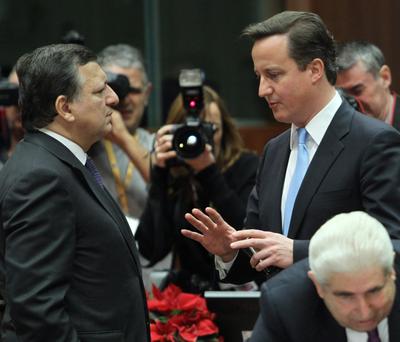The only EU country to reject the deal was the United Kingdom, which, in so doing, highlighted what most of us do not always appreciate about the nature of any regional economic cooperation.
When defending his decision, British Prime Minister David Cameron characterised the proposed European treaty as tantamount to the loss of sovereignty. In an ensuing parliamentary debate, he also claimed to be protecting the British national interest.
One should not be deceived into thinking that sovereignty and national interest are the same thing. The phrase ‘give me liberty, or give me death’, famously uttered by Patrick Henry prior to the American Revolution, may have been good war-time rhetoric, but it cannot serve as a sensible guide to peace-time economic decision making. Which is better, to live free but impoverished, or to prosper but with some limitations on freedom? A related question is, how could retaining sovereignty be in the national interest if it makes the country worse off?
Britain has already given up considerable sovereignty by being a member of the EU. Regional economic cooperation rests on the premise that some sovereignty is best exercised at the regional level. In the language of economics, this is because the actions of one economy can produce externalities that affect others, particularly as neighbouring economies grow closely connected. Some democratic societies (including Japan, not to mention Greece) have proven totally incapable of providently exercising sovereignty over fiscal policy at the national level, by being too ready to spend but too reluctant to tax. For them, some loss of sovereignty would be a good thing.
Europe has been a model of regional economic cooperation to which other regions, like Asia, look for inspiration. Its approach was to create regional institutions to which member countries yield sovereignty in specific areas. But the strengthening of sovereignty at the supra-national level (supra-nationalism) is counterbalanced by the parallel principle of inter-governmentalism, allowing each ‘sovereign’ member country to veto a decision to move supra-nationalism a step further. The latter operates by majority rule, while inter-governmental decisions require unanimity. Cameron’s decision to reject the deal was within this established mode of decision making, and so those outside the United Kingdom should not be critical of Cameron for his decision.
But if giving up some sovereignty over fiscal policy is so vital to Europe, what took them so long to come to this decision, even after the first signs of the crisis were apparent almost two years ago?
The euro crisis has revealed how inept Europe’s supra-national institutions are in dealing with a regional problem of this proportion. Instead, inter-governmentalism is currently centre stage as the mechanism of crisis management. Indeed, it is French President Nicolas Sarkozy and German Chancellor Angela Merkel who appear to be calling the shots for the rest of Europe. For better or worse, France and Germany are providing critical leadership when, despite over half a century of regional institution building, the huge Brussels bureaucracy proved little more than a paper tiger.
The surrender of sovereignty is an essential aspect of any economic cooperation, whether regional or global. Nearly 70 years ago, Harry Dexter White, articulating the United States’ proposal for a United Nations Stabilisation Fund, recognised a need to suspend ‘certain economic elements of national sovereignty in favor of international collaboration’. Otherwise, there would be ‘no hope that any international instrument can be devised to help bring about the kind of collaboration among nations essential to a prosperous and peaceful world’ and the world would ‘revert to the barbaric international relationship of the “twenties and thirties”’.
This is easier said than done, but we must always remember that this is the crux of any regional economic cooperation, whether in Europe or in Asia.
Shinji Takagi is Professor of Economics at the Graduate School of Economics, Osaka University.
This is part of a special feature: 2011 in review and the year ahead.

